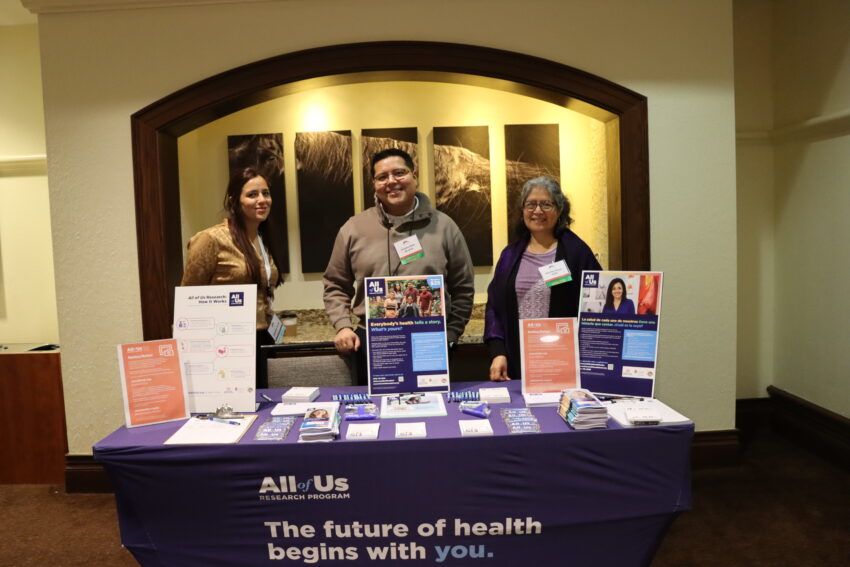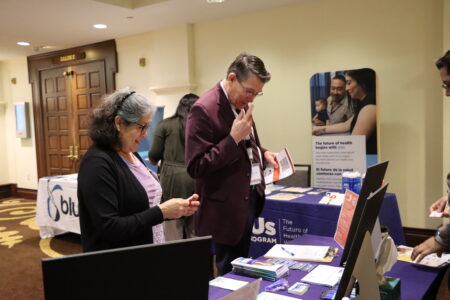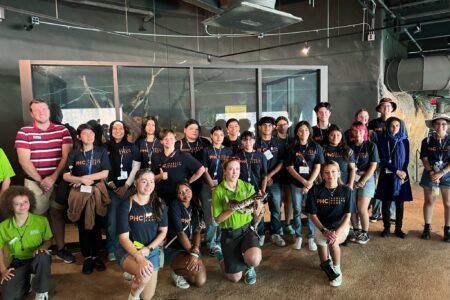
Share On Social!
The All of Us Research Program is peeling back the curtain on its ground-breaking health data collection by hosting its annual All of Us Research Convention.
On Wednesday, April 3, 2024, and Thursday, April 4, 2024, the free virtual conference will give attendees insight into how All of Us data is being used to fuel integral research that reflects the diverse country we live in.
All of Us, created by the National Institutes of Health, is a historic effort to collect and study data from at least one million people living in the United States.
“The goal of All of Us is to speed up health research discoveries, enabling new kinds of individualized health care, with a strong emphasis on diversity,” said Dr. Amelie G. Ramirez, director of Salud America! at UT Health San Antonio, an All of Us partner.
All of Us is building a network of information that researchers can use to conduct thousands of studies that cover people of every background and health condition.
Studies can help researchers understand risk factors for certain diseases, identify what treatments work best for people of different backgrounds, determine clinical studies that work best for individuals’ needs, and establish a relationship between technology and health.
These studies can then better inform individualized prevention, treatment, and care that reflects All of Us.
Register for the All of Us research convention or access the All of Us researcher hub!
April 2024 Update: More than 1,700 people registered to take part in the Researchers Convention. For those who couldn’t make it or for those wanting to relive the excitement from the convention, the sessions are now available to watch online. Those who didn’t register, but still want to view the recorded sessions can register for access.
All of Us and Latinos
As of mid-January 2024, over 525,000 people have completed the initial steps of the program — 16% of those who’ve joined All of Us identify as Latino.
Data collected by All of Us has spawned over 9,000 research projects.
Several of them are geared toward the Latino population.

For example, Pain in Older Latinos uses the data provided by All of Us to look for predictors of pain among older Latinos to help enhance treatment options.
Other examples include, Epigenetics of Rheumatoid Arthritis in Hispanic/Latino Population explores the relationship between a healthy lifestyle and the development of the condition, and Effects of COVID-19 on Socialization and Isolation in Latino Populations looks at the impact of pandemic-era mental health stressors on physical health.
Explore more All of Us Research projects using the project directory or request a review of projects by visiting the All of Us website.
If you are a health and wellness researcher, there is also still time to be part of All of Us’ latest campaign promoting research that impacts the Latino community.
For more information on how researchers are using All of Us data to fuel studies that are helping the Latino community or other population groups, register to participate in the upcoming convention.
Join All of Us in San Antonio or join All of Us anywhere in the nation!
Defining Health Equity Where You Live
Data collection is an important aspect of determining the overall health of a community.
To nail down the facts behind your community’s health equity, download a Salud America! Health Equity Report Card.
The Health Equity Report Card can give you an idea of where your community stands on important issues such as poverty, housing, education, and more.
Report cards are designed using facts, figures, and charts that compare your community to your state and the rest of the nation.
With this information, you can determine what areas need your attention most and enlist the help of organizations or local officials to create a positive change where you live.
GET YOUR HEALTH EQUITY REPORT CARD!
Explore More:
Healthy & Cohesive CulturesBy The Numbers
3
Big Excuses
people use to justify discriminatory behavior



